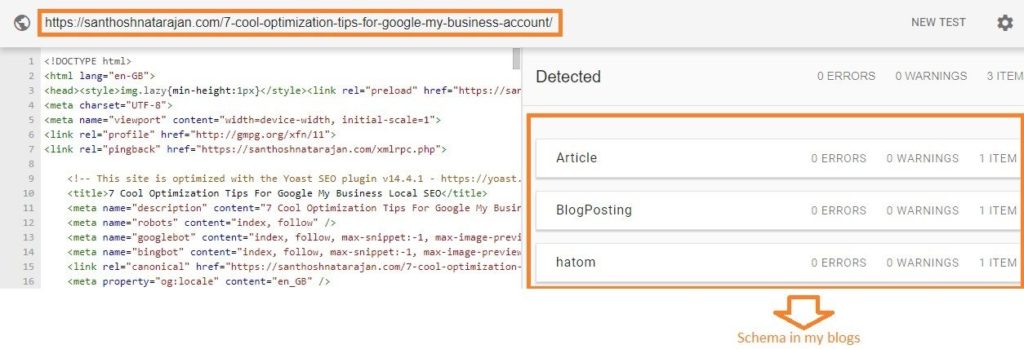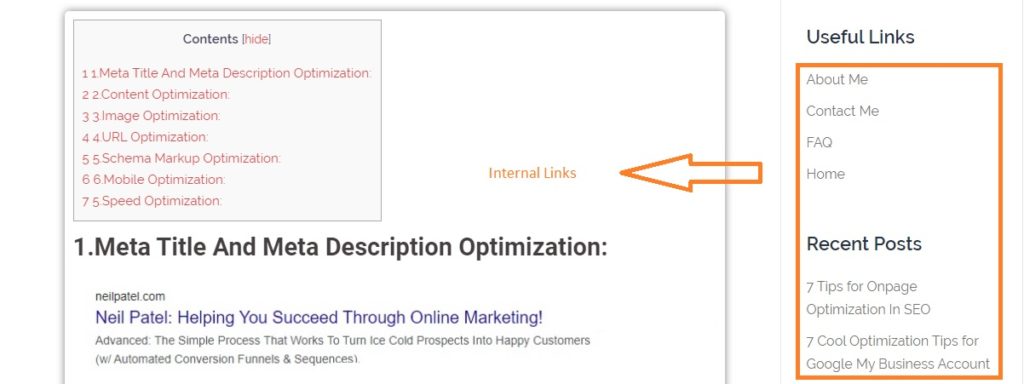Contents
1.Meta Title And Meta Description Optimization:

- Before you choose meta title and meta description do well keyword research with help of google keyword planner.
- Meta title and Meta description content details should be the same.
- Keep maintaining the relevance between title, description, page content, and headings.
- Meta title characters must be below 65.
- Meta description characters must be blow 155.
- Use catchy words and special character on title its give some attention to the customers.
2.Content Optimization:
- Choose a popular topic for content because unpopular topics can’t bring search volume.
- Insert some image or infographic details to your content.
- Give a brief explanation to your customers.
- Don’t copy the content from any other source because the search engine algorithm easily finds you.
- Make a separate paragraph for every 300 words.
- Use subheading and bullet points.
- Don’t make spelling and grammar mistakes.
- Use search volume high keywords in the content to make sure the words must be relevant to the content.
- Enable table of content details in your content its help to visitor read easily.
3.Image Optimization:
- Don’t copy the image from any other source because the google algorithm finds you. maybe you need to face copyrights problem.
- Make sure your image size must be below 100kb its help to load a page easily.
- The image details must be relevant to the content.
- Image Alt Txt is a very important one in image SEO – Optimization. The alt txt is helping to search engine to understand image details.
4.URL Optimization:

- URL length must be below 55 characters
- Its looks need should be readable.
- Make the relevance between slug and content.
- Don’t use special and numerical characters on a slug.
- use (-) hyphen only between URL words.
5.Schema Markup Optimization:

- Schema helps to search engine understand what kind of post or page this is so every page must have schema markup code.
- Now google use JSON-LD type schema markup code only.
- A lot of free schemas generator tools available in the market so you can easily generate.
- Use which schema suitable for your content for example if you write about a recipe so you need to add recipe schema.
- The FAQ schema helps your content to get better rank to compare to other schemas.
- Once you added the schema you need to verify page in structure data testing tool. It helps you have any errors in the schema.
6.Mobile Optimization:

Image source: Internet
- Your page content and image must have responsiveness for the mobile user.
- 90% internet users from mobile so make well mobile responsiveness.
- If you not done mobile responsiveness your content never will get a good rank in google.
- Make sure your content will fit for mobile, tab, desktop.
7.Speed Optimization:
- You can check the page speed in the google page speed insights tool. It will show your performance speed and errors.
- Make its desktop and mobile both page speed high.
- Page Speed Insights Levels:
- 0-49 poor
- 50-89 average
- 90-100 good
- Implement AMP (accelerated mobile page) details to your page its help to load very fast in mobile user.
8.Internal & External Links:

- Internal links help to reach your website other page content so visitor easily can access all your content.
- External links help to reach your content referring to other websites.
- While creating an external link on your website you need to mention no-follow. if you give do follow your website juice will go to another website.
- Put every page bottom internal links.
- In the website blog section sidebar need to have internal links.
9.H1-H6 Tag Implemetation:
- The H1-H6 tags are used to derive which words more important among the content so the search engine easily understands the content details.
- Tag levels:
- H1 – Title (Very Important words only)
- H2 – Headings? (Important words only)
- H3 – Subheadings
- H4 – H6 Paragraph
- Each tag content detail should be relevant.
- The title tag must be relevant with meta title and meta description.
- Before you write H1 tag do keyword research. use loan tile keywords.
10.Comments Section:
- If you get more comments from visitor its help to get a better rank on google.
- Try to get more comments from your audience.
- Share your content links on social media it’s maybe bringing so visitors.

4 thoughts on “10 Tips for Onpage Optimization In SEO”
Interesting insights – thanks for sharing. Will have to implement this on some level and relay the results.
Thanks for the comment
Thank you for the auspicious writeup. It in fact was once a entertainment account it. Look advanced to more delivered agreeable from you! By the way, how can we keep up a correspondence?
Kindly share your doubts clearly.
Comments are closed.